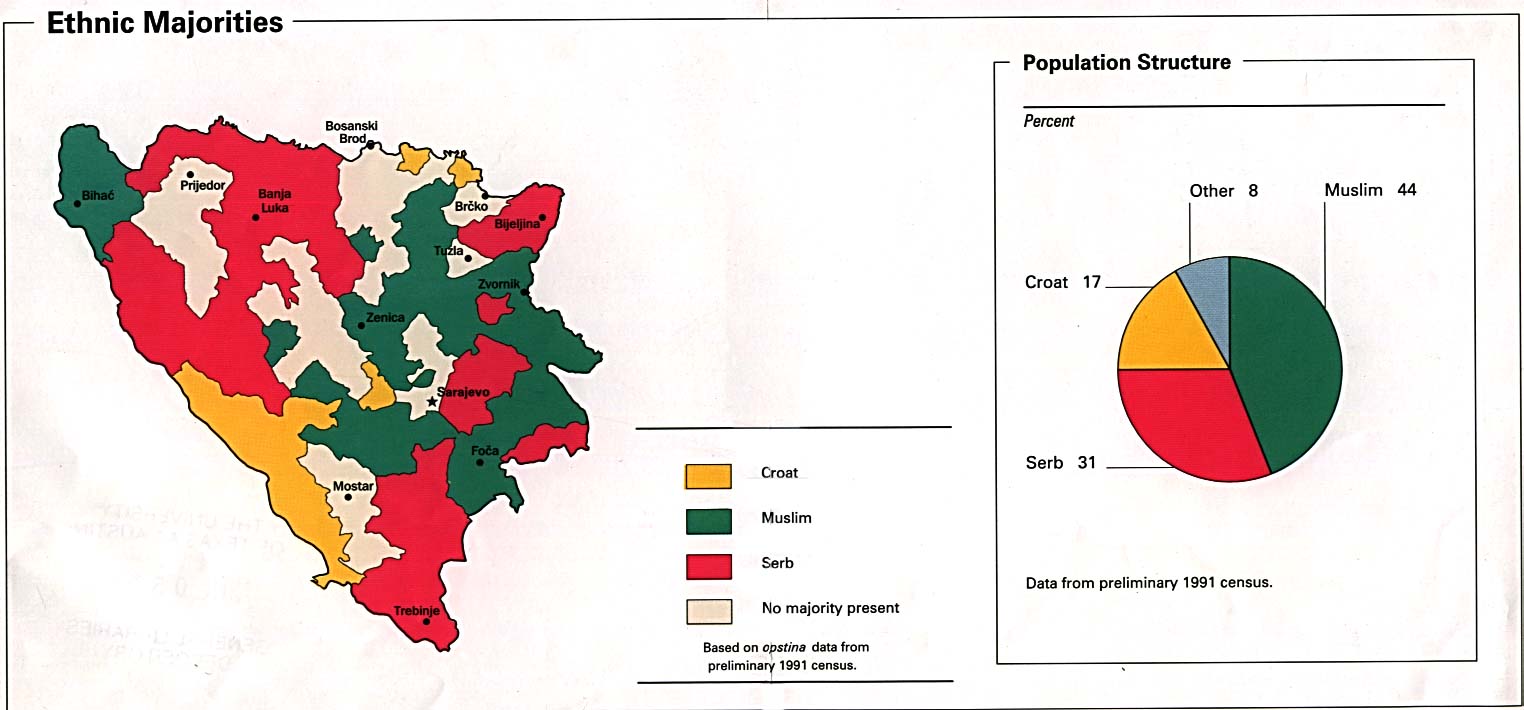
(from http://www.lib.utexas.edu/maps/bosnia/ethnic_majoities_bosnia.jpg)
territory: the delimited area over which a state, an individual, or a group exercises control and which is recognized by other states, individuals, or groups.
Nation: a group of people often sharing common elements of culture such as religion or language, or a history or political identity.
Territory: the delimited area over which a state, an individual, or a group exercises control and which is recognized by other states, individuals, or groups.
States: independent political units with territorial boundaries
that are internationally recognized by other states. - A political
organization in control of territory.
Nation-state: an ideal form consisting of a homogeneous group
of people governed by their own state.
Nationalism: the feeling of belonging to a nation as well as the belief that a nation has a natural right to determine its own affairs.
Centrifugal forces: forces that divide or tend to pull the state apart.
e.g. Bosnia

(from http://www.lib.utexas.edu/maps/bosnia/ethnic_majoities_bosnia.jpg)
centripetal forces: forces that strengthen and unify the state.
Language: a means of communicating ideas or feelings by means of a conventionalized system of signs, gestures, marks, or articulate vocal sounds.
Language family: a collection of individual languages believed to be related to their prehistorical origin.
example: Indo-European languages in Europe. Which languages are not Indo-European? Where did their people's come from?
Language branch: a collection of languages that possess a definite common origin but have split into individual languages.
example: the Romance languages were based on the common root
of Latin spread as the Lingua Franca of the Roman Empire.
Dialects: regional variations in standard languages.
Language group: a collection of several individual languages that are part of a language branch, share a common origin, and have similar grammar and vocabulary.
example: Scandanavian languages of Swedish, Danish, and Norwegian
are mutually intelligible.
resources:
Nation
or State?
Matt Rosenberg - The Mining Company Geography
E
Pluribus Unum?
"out of many, one"
Independent States of the World - U.S. State Department list
Ethnologue Database - Nations of the World Listed by Language and Country